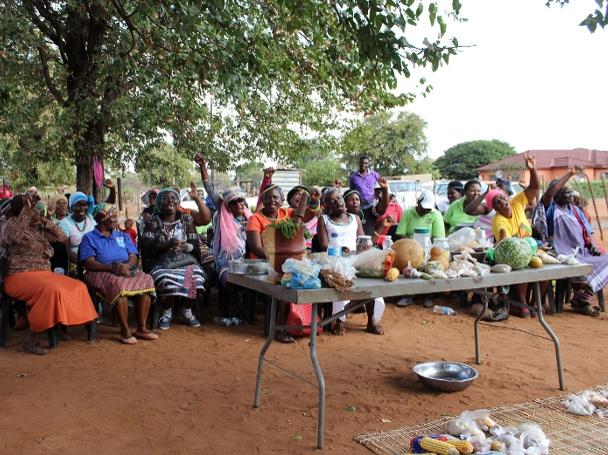Seed savers of Gumbu

A recently established South African community seedbank is entirely managed by women. Ronnie Vernooy, Genetic Resources Policy Specialist, explains how Bioversity International is supporting farmers to improve traditional seed-saving practices.
A recently established South African community seedbank is entirely managed by women. Ronnie Vernooy, Genetic Resources Policy Specialist, explains how Bioversity International is supporting farmers to improve traditional seed-saving practice.
A community seedbank is a solution for improving access to, availability and safeguarding of seeds. It is an agreement among farmers to conserve crop varieties of importance to them, document indigenous knowledge related to how they can be eaten, used and sown, and exchange their seeds with others.
During the last 20 years, Bioversity International has contributed to the establishment or strengthening of community seedbanks in ten different countries. Recently, in collaboration with the South Africa’s Department of Agriculture, Forestry and Fisheries, we set up a pilot seedbank in Gumbu village of Limpopo province, South Africa, a remote dry land with poor access to the market.
The Gumbu village community seedbank - inaugurated in October 2015 - is managed and operated by a group of 40 women farmers, who give priority to nutritious crops and varieties that are easy to combine in preparation of traditional dishes, require few inputs, are drought, pest and disease-resistant, have a short growing cycle and can be stored for long periods of time. They can now maintain a range of different crop species and varieties inherited from their parents, support their households in terms of food supply, and earn some extra cash, and will soon test improved varieties.
To learn more read Women for Expo's interview with Bioversity International's Ronnie Vernooy: The women’s seedbank
Photo: The women of Gumbu at a seed fair. Credit: Bioversity International/R. Vernooy
